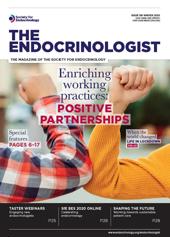Administration: not an obvious first date conversation, perhaps. But, despite the bad press, administration really matters. We certainly know when admin isn’t working – when referrals get lost, urgent patients are missed or when you just can’t run your clinic.
It’s interesting how much patients really care about it. They notice when administration does not work, when communication is poor, actions are not followed up, or chaotic processes are allowed to develop. The NHS may provide life-saving treatment but, as a patient, if you get given the wrong appointment date, are unable to get hold of the hospital over the phone or your clinic letter goes missing, it can be the source of incredible frustration, anxiety or upset, and understandably so.
Given that approximately one in seven NHS staff works in administration,1 there appears to be remarkably little discourse on the subject. An internet search yields few results. One notable exception was a King’s Fund study into the impact of NHS administration on patient experience, and they themselves note the paucity of research in this area.2
Administrative excellence in the NHS relies on recruiting and developing the right staff, having enough resources and ensuring there are great operational processes and systems for a seamless patient journey. But administration in the NHS is fiendishly complicated, beset by complex rules, and pressured by national targets and crises like COVID-19 causing unmanageable peaks and troughs of administrative work.
‘The NHS may provide life-saving
treatment but, as a patient, if you get given
the wrong appointment date, it can be
the source of incredible frustration, and
understandably so.’
As with many other parts of the system, administration has also been the target for cuts and cost improvement. Roles have changed due to technology; work has been centralised. For many, pay has not kept pace with the cost of living. The dismantling of traditional working arrangements, such as the consultant and medical secretary, has also had a significant impact. It is not surprising that NHS administration struggles.
And when administration goes wrong, it can have a detrimental impact on the relationship between administrative and clinical staff. There is the temptation to create blame, build barriers and reinforce notions of ‘us’ and ‘them’. But the main loser in taking this approach is ultimately the patient. The complex interdependencies at every step of the patient journey mean that deficiency in one area cannot be adequately compensated for elsewhere. The whole system needs to work. As one journal put it, ‘clinical and administrative staff of hospitals are like two parts of a train track.3
Unfortunately, our ability to invest more in administration is limited. In fact, successive governments have pledged to ‘slash NHS bureaucracy’ and administration costs. So, we can’t and shouldn’t be going back to the days of everyone having their own dedicated secretarial support. Therefore, NHS organisations need to redouble their efforts to engender a strong, functional partnership between administrative and clinical staff through the following practical and achievable interventions.
- Emphasise the value of an equal partnership with administrators
The first step is to recognise everyone’s contribution. Every individual is an important link in the chain of patient care, where the contribution of each professional group is valued, and understanding and integration between groups is proactively developed.4
- Reinforce the joint objective of providing the best care and experience to patients
A critical success factor in the partnership is embedding the core value(s) of the organisation.5 Take time to come together as a team, to remind everyone of the common mission, to get on the same page.
In our busy and highly pressurised world, it often feels like we don’t have time to invest in this. But it will pay dividends, with less time spent fixing things that go wrong, fewer needless hours of rework, and a decrease in investigating complaints and resolving grievances that can arise from a lack of partnership working.
- Get to know each other
Too often, administration and clinical teams only come together when things go wrong. Ensure you create time to convene, get to know each other and understand the challenges and opportunities everyone is facing. These are the foundations of healthy relationships.6
- Recognise admin staff as a professional group
Unlike other professional groups in the NHS, there is often a lack of cohesive identity for administrative staff. Implementing structured education, training, development and continuing professional development for admin staff can go a long way to redress this, and to help our admin staff feel more equal in the partnership.
As we enter the next challenging period of COVID, we need to value the contribution of our administrative staff more than ever. Teams need to work more effectively together, to be more agile to respond to an ever-changing situation, to be patient-focused, to ensure we prioritise the most clinically urgent patients, keep people safe and deliver care in the right place.
HENRY WILSON
Head of Transformation, University College London Hospitals
REFERENCES
- NHS Digital 2018 https://digital.nhs.uk/news-and-events/latest-news/statistics-show-change-in-nhs-workforce-over-time.
- Wenzel L 2019 www.kingsfund.org.uk/blog/2019/09/nhs-admin-patient- experience.
- Panahi Tosanloo M et al. 2019 Journal of Education & Health Promotion 8 191.
- Keller J et al. 2019 PLOS One doi: 10.1371/journal.pone.0212014.
- Cortese DA & Smoldt RK 2015 MGMA www.mgma.com/resources/ business-strategy/5-success-factors-for-physician-administrator-part.
- Haas M & Mortensen M 2016 Harvard Business Review www.hbr.org/2016/06/the-secrets-of-great-teamwork.






